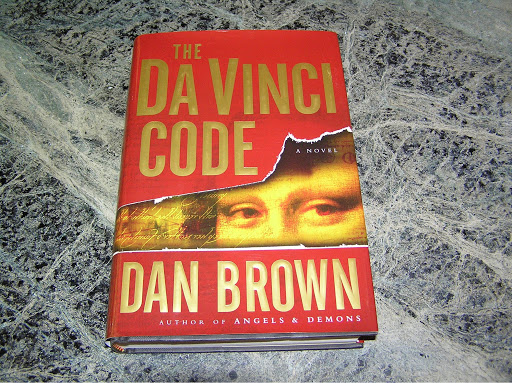The Da Vinci Code (2003)

Title: The Da Vinci Code
Author: Dan Brown
Year of Publication: 2003
Genre: Mystery, Thriller
Setting: Primarily in Paris, France, with various locations across Europe
Summary: "The Da Vinci Code" is a fast-paced thriller that follows the story of Robert Langdon, a Harvard symbologist, and Sophie Neveu, a French cryptologist, as they unravel a complex and secretive puzzle. The duo becomes embroiled in a dangerous quest to uncover the truth behind a hidden message found in the works of Leonardo da Vinci, leading them on a trail that spans centuries, secret societies, and religious conspiracy. As Langdon and Neveu race against time, they must decipher codes, solve riddles, and navigate through historical and religious enigmas to protect a secret that could shake the foundations of Christianity.
Major Themes:
- Religious Symbolism and Conspiracy: "The Da Vinci Code" explores controversial theories surrounding Christian history, symbolism, and the potential hidden messages within famous works of art.
- Secret Societies and Ancient Knowledge: The book delves into the idea of secret societies, ancient knowledge, and the preservation of hidden truths throughout history.
- Clues, Codes, and Puzzle Solving: Langdon and Neveu's journey is filled with puzzles, codes, and historical clues, highlighting the thrill of intellectual pursuits and the joy of unraveling complex mysteries.
Awards: "The Da Vinci Code" achieved remarkable success and became a global phenomenon. While it did not win major literary awards, it became a bestseller and has sold millions of copies worldwide.
Legacy: Dan Brown's "The Da Vinci Code" has had a significant impact on popular culture, sparking widespread debate, controversy, and renewed interest in the subjects it explores. The book's intricate blend of historical fact and fiction, fast-paced storytelling, and provocative themes has made it a favorite among readers of thrillers and mysteries. "The Da Vinci Code" has been adapted into a successful film and has inspired numerous works in similar veins, solidifying its place as a cultural phenomenon and a cornerstone of the conspiracy thriller genre.
